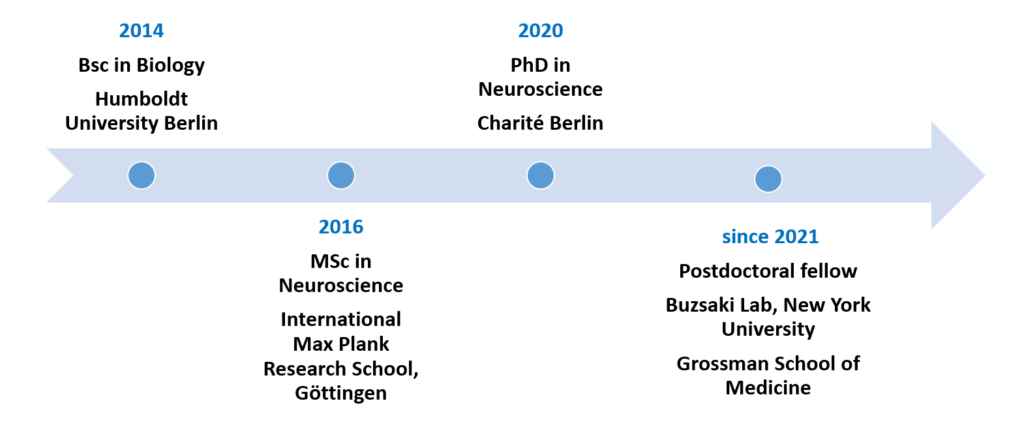Meet-the-Alumnus │Noam Nitzan A02 Postdoc
Name: Noam Nitzan
Currently at: New York University Grossman School of Medicine
Position: Postdoctoral fellow
Graduated: August 2020
Degrees: MSc, PhD
Graduate studies: Neuroscience

- Tell us about yourself. What do you currently do?
I am a postdoctoral fellow in the lab of György Buzsaki at New York University Grossman School of Medicine. My current research is focused on understanding the transformation of hippocampal signals as they are transmitted to downstream subcortical targets. The hippocampus is embedded in a larger network of cortical and subcortical structures often dubbed as the ‘extended hippocampal system’. This circuit includes the mammillary bodies, the anterior thalamic nuclei, the cingulate cortex and the parahippocampal region, which projects back to the hippocampus thereby forming a loop. It has long been recognized that the integrity of these structures is crucial for proper memory functions. The mammillary bodies, a deep pair of nuclei in the hypothalamus which receive dense hippocampal inputs is particularly known for its clinical significance, with damage to these structures resulting in various types of anterograde amnesia. However, the actual computations carried out by these structures are not well understood, largely due to the paucity of studies where activity in this area was directly monitored or manipulated during behavior.
In my project, I use silicon probes recordings in chronically implanted, freely behaving mice to monitor the activity from the hippocampus, the mammillary bodies and the anterior thalamic nuclei to study the input-output transformation executed by the mammillary bodies.
- How did your work in the lab help in your career after graduation?
During my PhD at Dietmar Schmitz’s lab (A02) I investigated a similar type of signal transformation, namely between the hippocampus and the retrosplenial cortex, another important node in the extended hippocampal system. Using a combination of in-vitro and in-vivo techniques and cell-type specific optogenetic manipulations I discovered a dense and highly specific projection from bursting cells in the subiculum, the output structure of the hippocampus, to the retrosplenial cortex. I found that this pathway is strongly engaged during sharp-wave ripple, high-frequency oscillations known to underlie memory consolidation.
My graduate work made me appreciate that in order to understand hippocampal function and its involvement in memory one has to look beyond the hippocampus. It therefore set the stage for my postdoctoral work, where I examine signal flow in the extended hippocampal network, including subcortical hippocampal targets.
- How did you conduct your job search after leaving A02?
During my PhD, I had the chance to collaborate with the Buzsaki lab at NYU. I immediately knew that this is where I would like to conduct my postdoctoral research.
- What advice would you give undergraduate students in neuroscience?
In recent years, neuroscience as a field has witnessed an enormous expansion that brought it to the interface with other interesting subjects such as the social sciences, philosophy, economics, politics etc. Many undergraduate students choosing to study neuroscience are motivated by these ‘big picture’ questions and rightly so. However, the actual questions tackled by PhD students tend to be much narrower and focused, and the actual work carried out during the PhD can be at times monotonous and repetitive. My advice for neuroscience students is not to give up on their interest in the bigger picture – keep on reading and deepen your understanding on the questions that brought you to neuroscience, not only research papers related to the topics you are working on at the moment – the PhD is the perfect time to expand your horizons. On a related note I’d advice young students to keep on pursuing their hobbies and interests outside of the lab – the PhD can be very immersive but it is important to ‘fuel’ and refresh yourself with other activities.
- How important do you think mentoring was and is for your career development, and would you be willing to mentor a student in our consortium?
I was very privileged during my PhD to receive abundant mentoring, not only from my PI but also from colleagues in the lab and even from neighboring labs. I’d be happy to share my experience with students.
>>> To connect with Noam, contact SFB Coordinator Marylu Grossman

